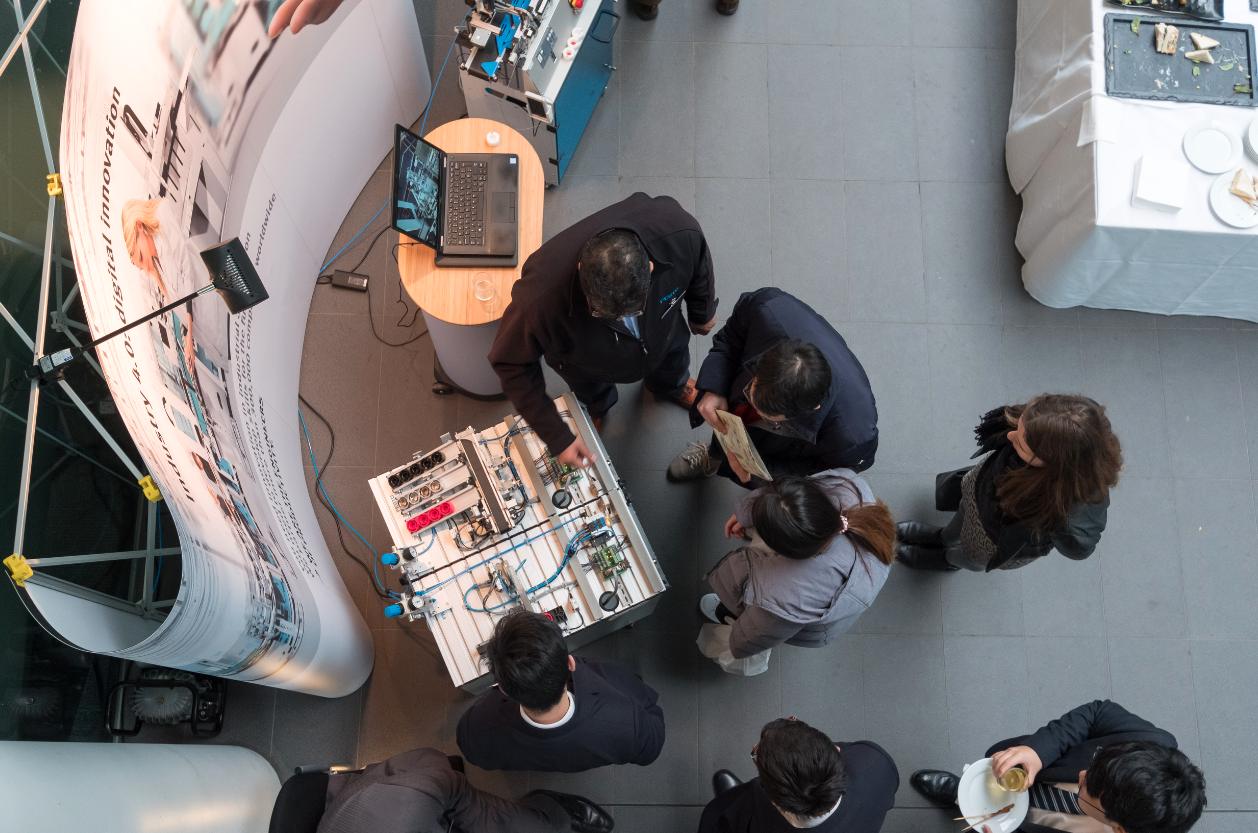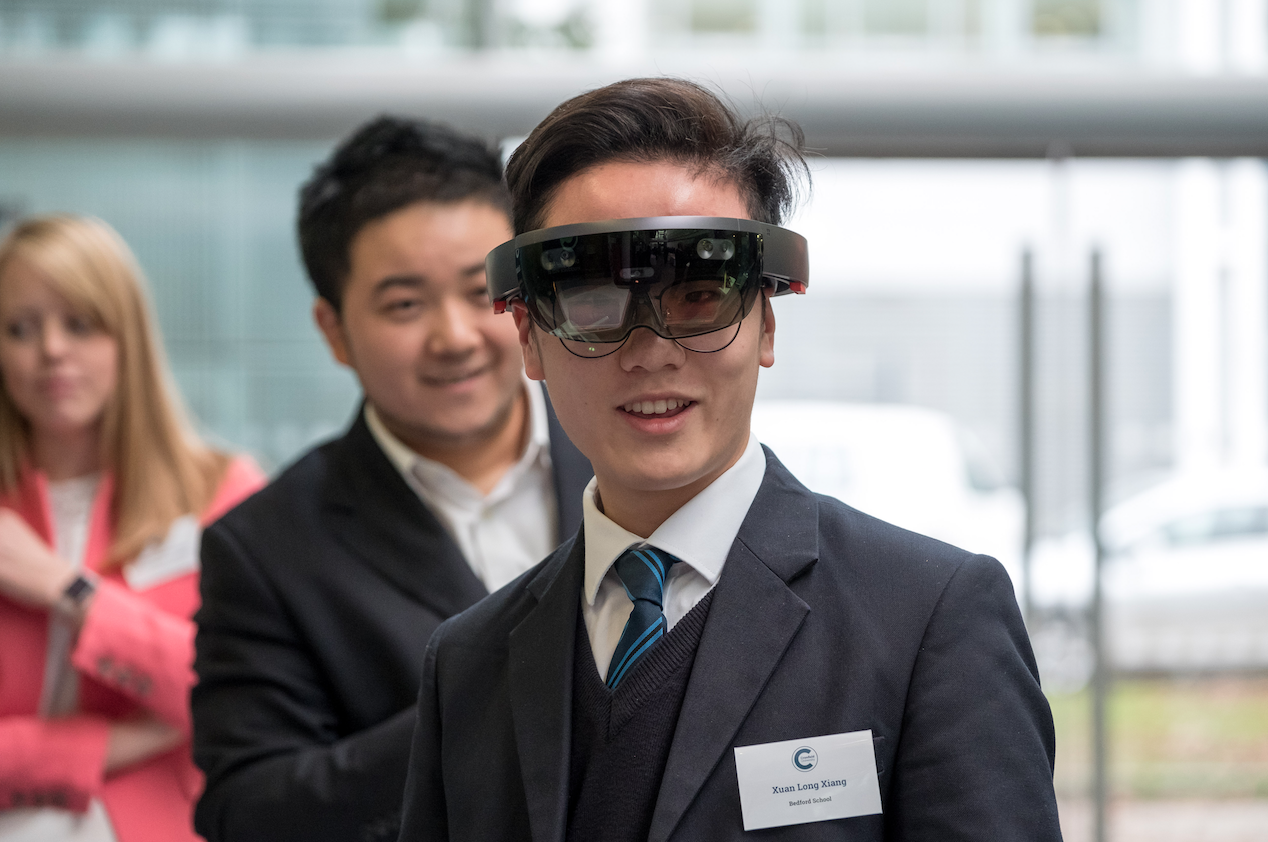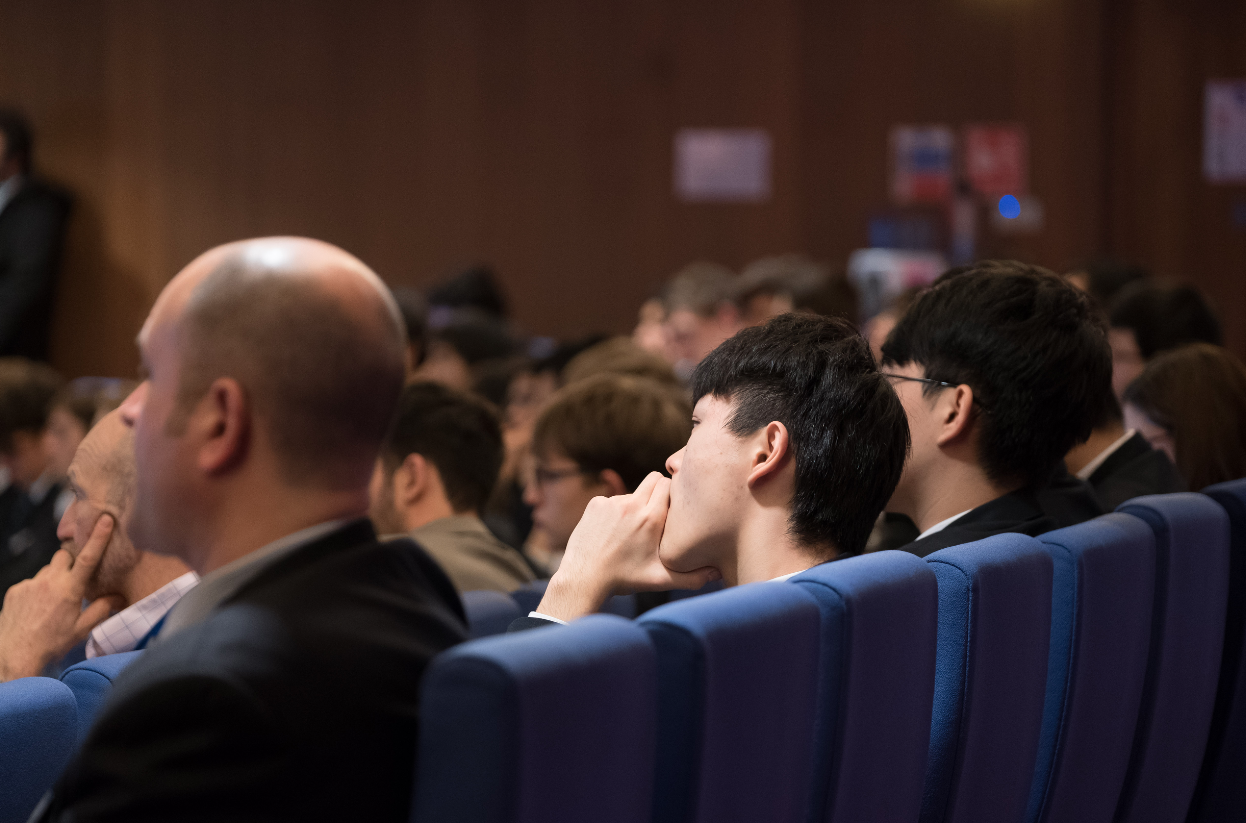Looking towards ‘Manufacturing 2075’ with Professor Mark Girolami: Part I
05/11/2018

Manufacturing engineering has always been data-centric, based on statistics captured from different forms of measurement. But the available data has been slow to arrive, limited, pedestrian.
A confluence of new technologies has led to an explosion in the capabilities of measurement and the possible data from machines, structures, processes and systems. So what was slow and static is now ‘alive’: a super-level of granularity, both in temporal and spatial data. Data-centric engineering means the information is always there to improve efficiency, performance and safety of any structure, item of machinery, or process that joins them all together.
What this means for manufacturing sector will be a key focus for Manufacturing 2075 (5 December 2018, Cranfield University).

School children enjoying the interactive learning at Manufacturing 2075: 2017
In business terms, there is the increasing importance to manufacturers of finding ways to monetise their data, to move from just providing products to a combination of products and services. A company should no longer be just a manufacturer of for example valves but an enterprise able to sell intelligence on the flow and nature of what passes through those valves.
A basis of data will allow for new technologies and materials to be introduced more effectively and safely. Like 3D printing. For all its potential there have been mostly only tentative and small-scale applications so far. In recent months, the Alan Turing Institute has been working with data from the world’s largest 3D printed structure, a 12 metre long stainless steel bridge due to be installed across one of Amsterdam’s oldest canals in 2019. The world’s largest 3D printed metal structure: a 12 metre-long stainless steel bridge. Sensors on the test bridge have provided data on how the structure has responded to a flow of people. In turn we’ve been able to create a ‘digital twin’ of the bridge and a real-time picture of how the physical bridge is performing.
With this level of analysis and quality assurance, the additive manufacture of more large-scale structures can become viable and commonplace. Civil engineering, in particular, has the potential to be transformed, allowing for more of our critical infrastructure to be manufactured cheaply and in easier to install forms. More can be provided in kit form, including entire buildings.

Register for Manufacturing 2075; 5 December 2018 at Cranfield University
The challenge will continue to be what the sector actually does in practice with all this new data. There will need to be more organisational and cultural change among manufacturers. Data-centric analytical tools, skills and practices will need to become part of every engineer’s toolbox – not just an area for the data specialists. And that will include cybersecurity (a major topic at this year’s Manufacturing 2075). More data exchange opens up more channels that can, in theory, be accessed by those with malicious intent. In this context there is going to be a real need for engineers who understand the situation holistically: the combination of clear-sighted decision-making based on an understanding of entire operations and supply chains, an ability to balance risks against benefits, to keep the business moving forward and not shrinking into itself or exposing the organisation to unnecessary threats.
Written by Professor Mark Girolami; Royal Academy of Engineering Research Chair and Chair of Statistics at the Department of Mathematics at Imperial College London, he is also Programme Director for the Alan Turing Institute-Lloyd’s Register Foundation Programme in Data-Centric Engineering.
Professor Mark Girolami will be presenting at this year’s Manufacturing 2075 conference on the 5th of December 2018.
>> Register here for this year’s Manufacturing 2075 conference <<
Categories & Tags:
Leave a comment on this post:
You might also like…
Introducing… Bloomberg Trade Flows
Are you interested in world trade flows? Would it be useful to know which nations are your country's major trading partners? If so, the Bloomberg terminal has a rather nifty function where you can view ...
Cranfield alumni voyage to the International Space Station
Seeing our alumni reach the International Space Station (ISS) has a ripple effect that extends far beyond the space sector. For school students questioning whether science is “for them”, for undergraduates weighing their next ...
From classroom to cockpit: What’s next after Cranfield
The Air Transport Management MSc isn’t just about learning theory — it’s about preparing for a career in the aviation industry. Adit shares his dream job, insights from classmates, and advice for prospective students. ...
Setting up a shared group folder in a reference manager
Many of our students are now busy working on their group projects. One easy way to share references amongst a group is to set up group folders in a reference manager like Mendeley or Zotero. ...
Company codes – CUSIP, SEDOL, ISIN…. What do they mean and how can you use them in our Library resources?
As you use our many finance resources, you will probably notice unique company identifiers which may be codes or symbols. It is worth spending some time getting to know what these are and which resources ...
Supporting careers in defence through specialist education
As a materials engineer by background, I have always been drawn to fields where technical expertise directly shapes real‑world outcomes. Few sectors exemplify this better than defence. Engineering careers in defence sit at the ...






